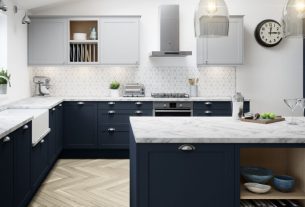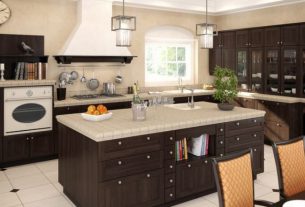What does it take to create a fashionable kitchen that draws the family together around meals?
The ability to invent! Top kitchen designers can create elegant and efficient kitchens because they have the necessary experience.
Skills for a Kitchen Designer:
1. Individuality
The great majority of kitchen designers have a passion for creativity and art. This fuels their passion for interior design, and the kitchen is one of the most difficult rooms to design in the house, requiring a lot of imagination. Essentially, before you can create a beautiful kitchen, you must first have a great vision.
Brainstorming is a great approach to get your creative juices flowing since it provides for an unrestricted flow of ideas. While this tactic may appear chaotic at first, as better ideas arise, you will discover that there is a method to the madness. Brainstorming is extremely successful in allowing you to see things from a different perspective, thereby opening up a new universe of possibilities.
You might also adopt a more structured approach known as “lateral creative thinking,” which challenges you to use your imagination to study the site from multiple angles.
2. Keep a keen watch on the literature
If you have a creative streak, you will do well as a kitchen designer. However, because this job entails a great deal of paperwork, you must like every step of the procedure. Check that your kitchen design requirements, for example, comply with applicable municipal legislation, which are usually available on the website of the local government
You should also conduct due diligence on any partners with whom you collaborate to ensure that they are officially accredited and possess the expertise they claim. Not to mention the budgeting for the project. All of this can take several hours in front of a computer screen, and even if you have help, you must sign off on certain documents. As a result, it’s critical to understand the technical and administrative components of kitchen design.
3. Technical expertise
A kitchen designer must have specific technical abilities in order to operate design tools and understand how to interpret architectural designs. This is owing to the fact that you will be working with a range of specialists to bring your idea to life, including architects, lighting designers, and constructors.
As a result, as you work together to make your ideas a reality, you’ll need to be able to explain your objectives to them in a way that they understand. You want to be able to clearly and concisely express your vision to your technical colleagues.
You must be involved in every stage of the process as a kitchen designer, from planning and design to putting the finishing touches on the project.
4. Establish a reputation as a reliable communicator.
As previously said, you will be speaking with a variety of people during the design process of each kitchen, so being a strong communicator will be beneficial. You must be able to communicate successfully with the clients for whom you are designing in order to acquire a thorough brief that allows you to perfectly harness their own tastes.
Personality, openness, warmth, friendliness, and professionalism are all necessary characteristics. You don’t want a miscommunication with the client for whom you’re designing the kitchen, because mistakes might be pricey.
5.Project management.
Kitchen design needs a great deal of collaboration, therefore you’ll need to be an excellent project manager. Vendors will provide materials and hardware, architects will design the kitchen’s framework, and builders will put it all together.
You’re also in responsible of overseeing your own internal team to ensure that everyone is on the same page and working smoothly.
6. Have a solid understanding of how to operate with light.
The way we view and experience our surroundings is greatly influenced by lighting. It also has an affect on the look, geometry, and feelings of a person. For example, neutral lighting creates a nice, clean, yet inviting atmosphere that is ideal for a kitchen, especially one with limited natural light.
Lighting design and the various types of lighting available for various kitchen styles should also be familiar to you. A gleaming chandelier is unlikely to work in a rustic farm-style kitchen, whereas job lighting should be focused on specific areas.
7.Geographical awareness
You’ll learn about your client’s personal and style preferences as part of the client brief. It is your responsibility to fully comprehend this brief in order to include the client’s lifestyle into the project. The objective is to create a room that is both useful and visually pleasing.
This necessitates spatial awareness, which helps you to comprehend why the space is configured as it is. Is there enough light in the room? Do you live in a house with high ceilings? Is it possible to have a one-of-a-kind shape? This is the initial phase in the design process, and it will influence the rest of the project. Read More
It’s Entire A well-designed kitchen can fully change a space and breathe new life into a house. After all, the kitchen is the home’s beating heart.
When you design a kitchen for someone else, you have the opportunity to create something they will like, and nothing compares to the satisfaction that comes from making someone happy. You also have the chance to show off your individuality.
According to Ms. Mariana Joseph from Techfetch RPO (https://rpo.techfetch.com/), best rpo providers in usa, “As a Kitchen interior ,You’ll spend a lot of time in front of a computer making plans and drawings to ensure that kitchens are as useful and structurally strong as they are aesthetically beautiful. While I beileve having a diverse set of abilities will help you become a professional kitchen designer”.




